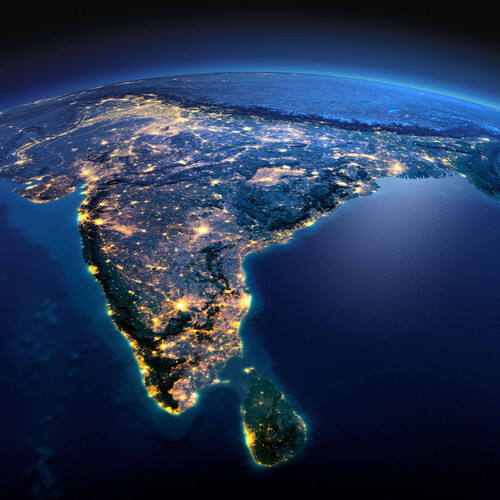New Delhi: Demonstrating a commitment to inclusive development, the Government actively implements the National Geospatial Policy 2022 (NGP) and significantly expands access to and usage of spatial data, rapidly improving citizen services and extending its reach to the remotest corners of the country. The Department of Science and Technology (DST) consolidates the governance framework to liberalize geospatial data access for implementing the NGP, launched in 2022. DST continuously strengthens Geospatial Data Infrastructure and enterprise development, emphasizing Atmanirbhar Bharat by empowering local companies to generate and utilize their own geospatial data to enhance global competitiveness. It actively encourages open standards, open data, and platforms.
Secretary Abhay Karandikar of DST states, “The Hon’ble PM has highlighted the role of geospatial technologies in driving inclusion and progress at the UN World Geospatial International Congress. The liberalization of Geospatial data access through NGP has been a major step in this direction, transforming the way spatial data is used to reach its benefits to the people.”
Under the visionary leadership of Narendra Modi, the governance framework consolidates after announcing the policy for liberalization of data access. The requirement for prior approval, security clearance, licenses, and other restrictions on Geospatial Data and Maps within India are actively dispensed with. The pre-existing clearance system is actively replaced by self-certification, simplifying access.
To strengthen data infrastructure and improve the availability of and access to better location data across organizations and sectors, the Survey of India (SoI) actively launches a pan-India Continuously Operating Reference Stations (CORS) Network. Besides, SoI actively surveys and maps more than 2.8 lakhs villages by Drone Flying under the SVAMITVA Scheme, covering the states of Andhra Pradesh, Haryana, and Karnataka.
Individuals, companies, and government agencies can actively process acquired Geospatial Data, build applications, and develop solutions on it, as well as actively use such data products, applications, and solutions. Through this, as well as through the active promotion of open standards, open data, and platforms, the NGP actively encourages enterprise development. This will actively help foster a thriving geospatial industry in the country with active participation from private enterprises.
The citizen-centric policy actively empowers local companies to generate and utilize their own geospatial data, enabling innovations, and actively promoting technology innovation and adoption by establishing incubation centers, industry accelerators as well as Geospatial Technology Parks. It is actively poised to make India a world leader in the global geospatial space with the best-in-class ecosystem for innovation.
Thus, NGP, with its active focus on freedom to innovate and increase access to spatial data, becomes a crucial tool to actively support national development, economic prosperity, and a thriving information economy towards the PM’s dream of Viksit Bharat.


